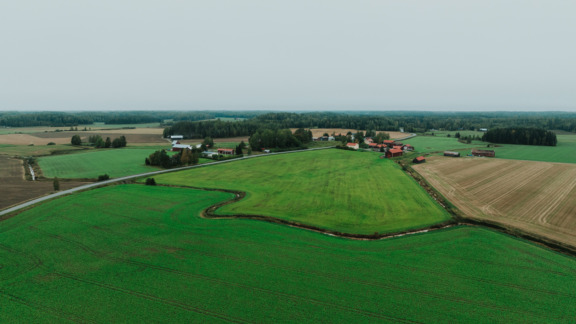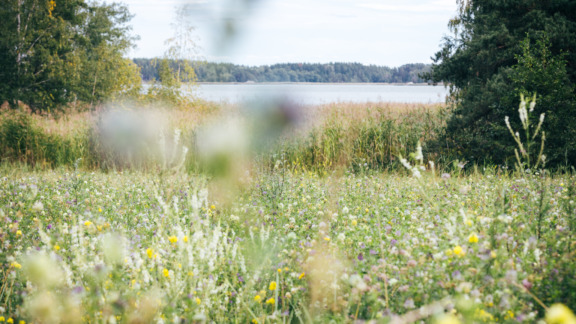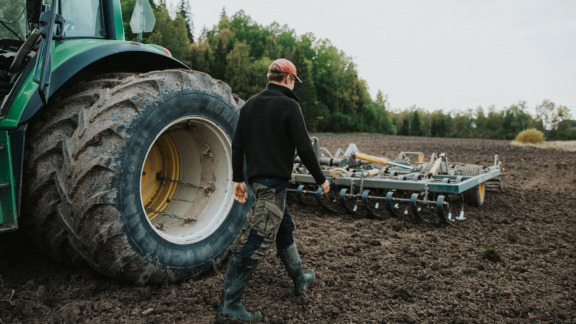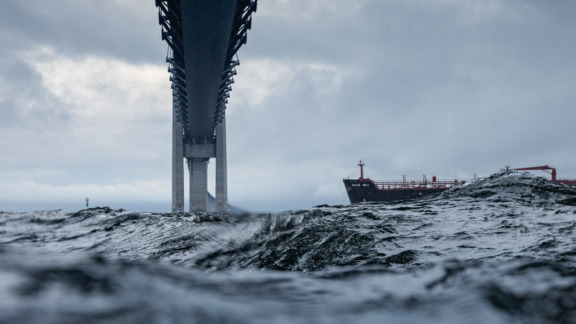Qvidja farm is a lighthouse for Carbon Action research
Qvidja Farm develops agriculture and conducts Carbon Action research and training. It aims to create a food production system that is good for the Baltic Sea, the climate, biodiversity, and people.
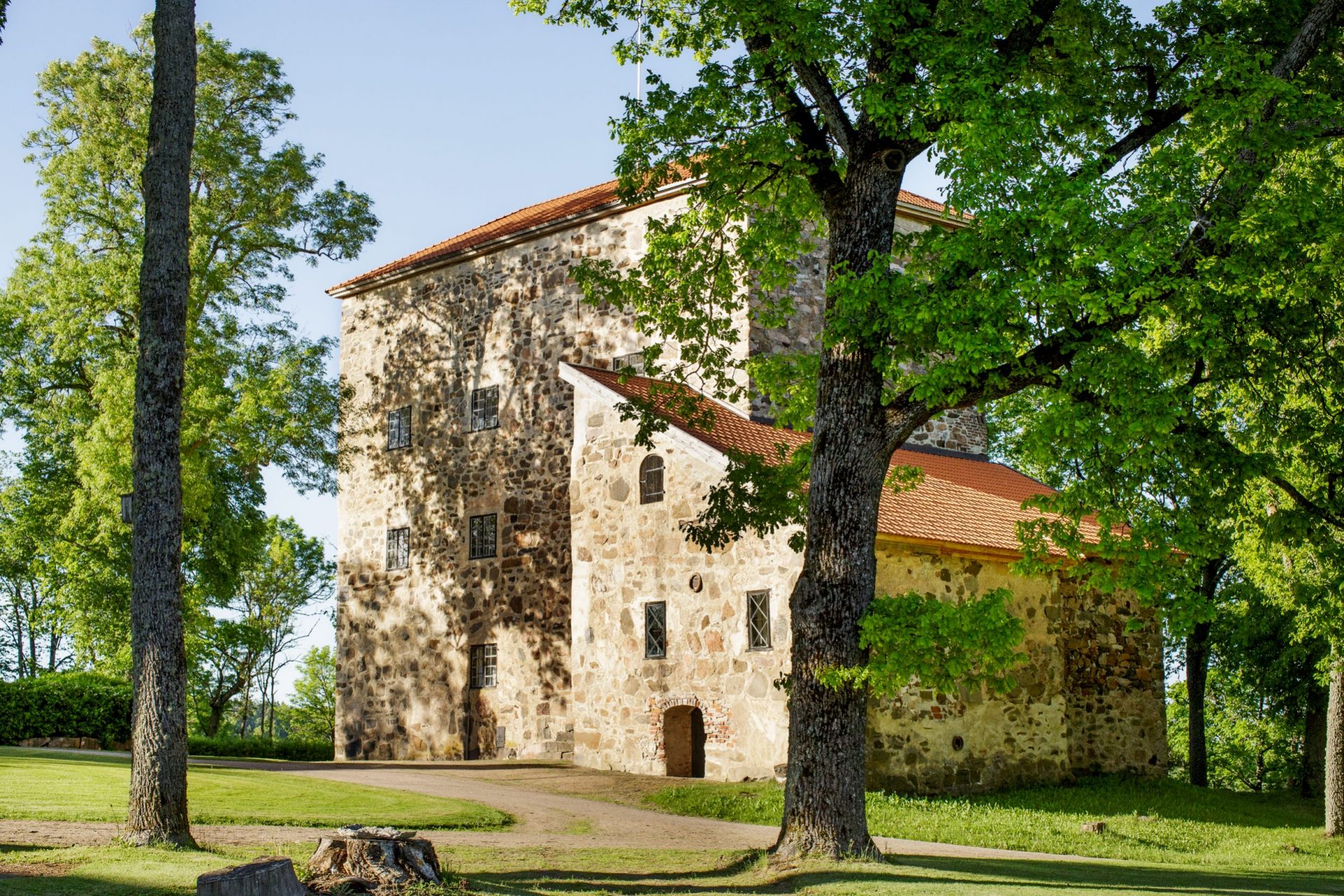
WHAT?
Qvidja Farm carries out intensive Carbon Action research and shows stakeholders the effects of putting regenerative agriculture into practice.
WHO?
Saara Kankaanrinta and Ilkka Herlin own the farm, the Finnish Meteorological Institute oversees research, and BSAG plays a significant role in farm visits and training days.
WHY?
To create a food production system that is good for the Baltic Sea, the climate, biodiversity and people alike.
Researching and developing regenerative farming
The land has been cultivated for more than a thousand years at Qvidja Farm, which is owned by Ilkka Herlin and Saara Kankaanrinta. Qvidja Castle in Pargas is the oldest preserved stone manor in Finland. Qvidja Farm has 140 hectares of fields and 650 hectares of forest.
It acts as both a pilot farm and an intensive testing area for Carbon Action research – and is a lighthouse for Carbon Action.
Its owners are moving towards regenerative farming. They take a multi-species approach and utilise catch crops, organic soil improvers and diverse crop rotation. Agroforestry and rotational grazing are also carried out in Qvidja – the farm is home to sheep, horses, and cattle. Everything is done with an eye to biodiversity, carbon sequestration and protecting the Baltic Sea.
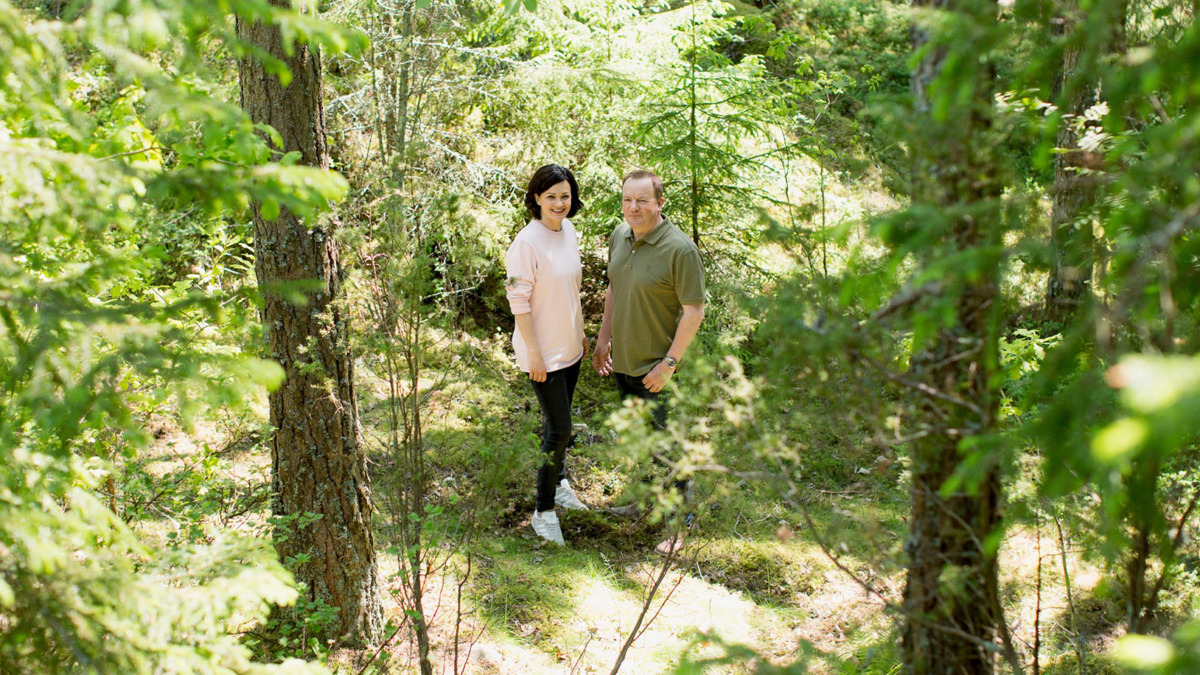
Visits, peer learning and training
With its field trials and historic stone manor, Qvidja Farm offers an exceptional and memorable place for stakeholder visits. Qvidja attracts even the busiest stakeholders. In peak years, about 1,000 people have visited the farm – business and media representatives, officials, policymakers at various levels, researchers, farmers, and advisors.
At Qvidja, they are presented with research and practices. The farm’s fields are used to familiarise people with the soil – they get to dig holes and study the properties of different soils themselves. This enables training and peer learning and inspires stakeholders to make changes. Visitors to the pilot farm have included everyone from the Parliamentary Committee on Agriculture and Forestry to the 100 Carbon Action farmers who are learning about carbon farming.
Soil defence courses are held at Qvidja every year for key stakeholders. This training started in 2018. The course explains the importance of the soil and has aroused broad interest among everyone, from high-level policymakers to business and media representatives. Finland’s EU Presidency also kicked off with a visit by international journalists to Qvidja.
At Qvidja, Carbon Action researchers work with farmers to ensure that research meets concrete needs.
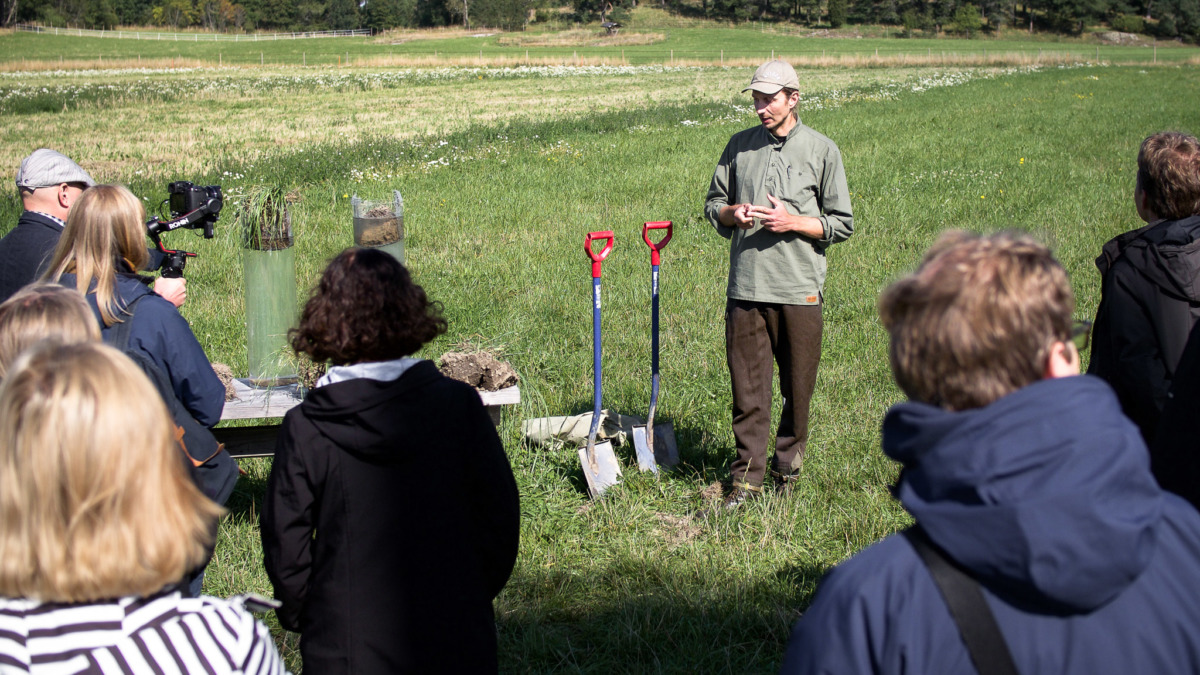
Qvidja’s grassland fields as a carbon sink
At Qvidja, Carbon Action researchers work with farmers to ensure that research meets concrete needs. They study carbon sequestration, that is, how carbon is removed from the atmosphere and stored in the soil.
The carbon balance of fields is monitored using continuous measuring devices. You can follow research results from Qvidja’s fields in real-time via the Field Observatory. The world’s first grassland field carbon sequestration forecast is also included.
The net carbon dioxide transfer in Qvidja’s grassland field has been measured since May 2018. The researchers measure and study how and when the grassland field acts as a carbon sink. The field in question is shifting from intensive agricultural methods to regenerative methods.
